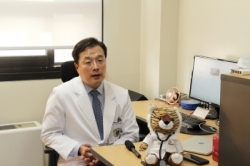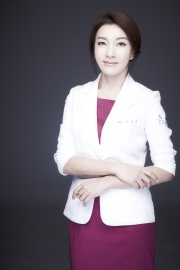Ryu Seo-yeon, Jeong You-hyun, Kim Ha-rin, Lee Yun-jeong
Throughout history and in many societies, mental health has been considered a taboo subject. Even though current research suggests that mental illnesses are not that different from other types of diseases that most people are familiar with, they are still regarded as incurable illnesses that are somewhat ignored. Mental illness is the umbrella term that covers a range of conditions such as depression, dissociative amnesia, panic disorder and post-traumatic stress disorder. Despite the familiarity of those conditions, many people are unaware of the symptoms and treatment options. This has led to an increasingly worrying phenomena where, instead of accepting the sickness, people are denying the very fact that they are potentially mentally ill. Perceptions by society at large play a significant role in this mode of thought by those suffering the effects of any mental illness. Fortunately, psychiatrists are breaking down misled public perceptions on mental illness, which is a positive factor for the patients and the public. It gives hope to patients by answering questions about mental diseases they were afraid to speak about due to public perceptions, while casting out uninformed opinions that others have against mental diseases.
Take it easy: mental health and psychiatric counseling

Dr. Han Chang-su, a professor of psychiatry at the College of Medicine at Korea University, specializes in treating patients with dementia, forgetfulness and depression. Recently, he has begun exploring Post-Traumatic Embitterment Disorder (PTED), which has culminated into his book , ‘Always by your side: Stories of Posttraumatic growth,’ which thoroughly details PTED.
The road to becoming a psychiatrist
“As a kid who enjoyed reading books, I dreamed about having an occupation in the study of history, media and psychology,” Dr. Han said. “By the time I was about to go to university, I found that there was the study of mental science in medical school, which is pretty similar to psychology and humanities. That persuaded me to choose my major in the science of mentality.”
Psychiatrists and psychologists: what’s the difference?
For many, the differences between psychiatrists and psychologists are blurred and remain a source of confusion. But there are key differences in these fields of both care and study.
Psychology, for example, looks into various theories surrounding counselling and personality theory and after graduating university, their specific fields are divided based on their major in graduate school. Psychological treatment can include, for example, treating someone with mental trauma through regular counselling without additional medicine.
Psychiatry or psychotherapy, however, differs in that it considers the mental effects of said conditions, as well as the physical aspects in the body that require treatment with modern medicine.
“Basically, neuroscience [the study of the brain] is the field of doctors. We study the fundamentals including anatomy, genetics and biology,” Dr. Han said. “Psychotherapy cares for both the patients’ mental and physical wellbeing. We stand on the boundary between psychology and medical science, assisting in people’s mental problems and prescribing medicine when needed.”
Myths about Psychotherapy
There are many common myths surrounding mental health treatment and some which are unique to Korea. These can have great detrimental effects on those requiring treatment from worsening symptoms to permanent damage.
Common stigmas and myths attached to mental health treatment range from those requiring the treatment being berated by loved ones to the fear of Human Resources teams in companies accessing your mental health records and in turn not giving you a job.
Especially the latter, says Dr. Han, is a complete myth. Access to patient’s records are strictly forbidden from the public and remain confidential between patient and psychiatrist.
“Not even a family member can take a look at your medical record,” Dr. Han said. “There is no need to explain, a company has no legal right to look at personal records of the employees.”
What to remember before seeing a therapist/psychiatrist
Seeing a therapist or psychiatrist for the first time can be a daunting experience for those unfamiliar with the process due to the societal stigmas attached to seeking help. Furthermore, being ready to express vulnerabilities about your own experiences and thoughts is a big step for anyone. But Dr. Han suggests that “it’s no big deal.”
“There is an episode in the sitcom ‘Sex and the City,’ when the main character feels down. She goes to a nail salon and starts talking to the nail artist about her problems. It is very much similar to that,” Dr.Han said. “Consider it as a normal conversation with a friend who is exceptionally good at listening and reorganizing your thoughts.”
According to Dr. Han, mental health and depression specifically, is like putting out a fire. By seeking early treatment, one can put out the fire quickly and easily. But if one neglects it for a long time, it can transform into an inferno that is very difficult to control and more difficult to put out.
“What we’re trying to do [as therapists and psychiatrists] is stop the fire from spreading,” said Dr. Han said.
Dr. Han cautions about the idea that therapists and psychiatrists can solve all of the patient’s problems, as it eventually must be the individual to take those steps. But according to Dr. Han it can be linked to reconceptualizing the way we look at our past.
“We look back at an experience associated with pleasant emotions and call it a memory. We look back at an experience with bad emotion and call it a trauma,” said Dr. Han. “We’re not trying to deny the past. What we’re aiming to do is to be okay with the bad emotion and ultimately for the patient to be able to look back and feel less agitated.”
Dr. Han’s advice for young people
The 21st century holds many unknowns, which can be daunting for any young person coming up in the world. It can sometimes look like a scary and unforgiving place and there can be a sense of being alone. But many people like Dr. Han are willing to listen.
“I understand that there is a big burden on the current generation’s shoulders,” Dr. Han said. According to him, worrying about things in isolation will not help. He suggests you are not alone and that there are other options from general therapy to medical treatment. “Be your own ally,” Dr.Han said. “Let’s think about what is best for you.”
Self-realization and understanding yourself

Known to the general public for her numerous appearances on screen as well as her books, Yoo Eun-jung is a psychiatrist who had spent her life as an undergraduate and graduate student in the College of Medicine at Ewha. She starred in ‘Let Me In,’ a Korean television program based on improving one’s self-esteem through plastic surgery. When ‘Let Me In’ was aired, she played an active role in the program as a counselor.
Yoo works as the director of Good Image Clinic, in Seocho-gu, which specializes in obesity and stress. She is also the CEO of Good Image Psychology Counseling Center. Yoo mentioned that during her career she has counselled numerous female patients in their 20s and 30s who have sought advice on worries about dieting, binge eating, and general self-esteem.
“As a psychiatrist, I could not avoid the stereotypes and misunderstandings of psychiatry,” she said.
According to Yoo, people tend to misunderstand the idea that once they start taking psychiatric medicine, they will not stop taking them. Patients solely focus on the potential side effects of the medication. Despite this, Yoo assures them that the damage caused by not taking medicine is much greater than the side effects. During early treatment, medication is important in all diseases especially depression, eating disorder, insomnia, and panic disorder.
Although more people are finding it comfortable to visit a psychiatrist nowadays, some still hold negative perceptions on mental illness to the degree of feeling ashamed of themselves for having a condition and go on to hide or suppress it. Several patients Yoo met even wrongly blamed themselves for having a mental illness because of their weak will or bad personality.
In an effort to break prejudices and misconceptions, Yoo has delved into writing. After publishing her first book in 2011, she has continued her career as a writer. Her most recent work emphasizing the concept of self-compassion, ‘It is not me too sensitive, it is you too unreasonable,’ was published in September. Through the book, she wanted to convey the message that a patient is merely a victim of emotional exploitation who needs to embrace themselves.
“I felt bad for those who cannot visit hospitals despite suffering from mental diseases, family problems, and social damage,” Yoo said. “Therefore, I published psychological books to make it easier for the public to become familiar with their problems and encounter potential solutions.”
Through her writing, Yoo has reached out to a wider audience across Korea, spreading the message of the importance of mental health. Her book, ‘Don’t be nice alone, not to get hurt’ that was published in 2016 was the most borrowed book on healing in the nonfiction category from 2017 to 2020, according to the National Library of Korea’s borrowing data in 1147 public libraries.
“The increasing demand for this book of healing shows how much people in our modern society are hurt,” Yoo said. “It can also be interpreted that there are many people who cannot take care of their wounds. I have read feedback from people saying that while living in a culture of quickness where they do not have enough time for self-care, reading that single book made them feel like they were receiving psychological counselling.”
To continue to write and spread knowledge on mental health issues is something that Yoo mentioned that she would strive to do.
With an interest in the mental health of people in their 20s and 30s, Yoo has come to understand that there are many decisions and challenges that lay ahead of them in the future. Finding a career, a spouse, and raising children are some key decisions and questions facing young people today.
Yoo sees these as “gates to go through like developmental tasks.” However, she noticed that many undergo hardship because of the repeated sense of hopelessness, accompanied by a sense of helplessness if not supported by their surrounding environment. Some of the most common questions Yoo receives are: ‘What should I do?’ ‘Why should I study this?’ and ‘Why am I alive?’
Yoo explained that if this mindset persists, it will affect brain neurotransmitters and lead to a sick brain instead of a happy brain. After a year or two, one’s academic and cognitive abilities such as concentration and memory will decrease leading to social reclusiveness. Acknowledging this, Yoo offered some advice to young people.
“Instead of hastening yourself, take some time to understand who you are, what you are good at, what you like, and when you feel happy,” Yoo said. “This is the process of selfrealization where you get to know more about yourself. Understanding oneself is crucial to seeking a job, a life, and a spouse that suits you. It is not something that dawns overnight, so endure the time and effort in getting to know yourself. During that period, do not compare yourself. Focus solely on yourself.”

